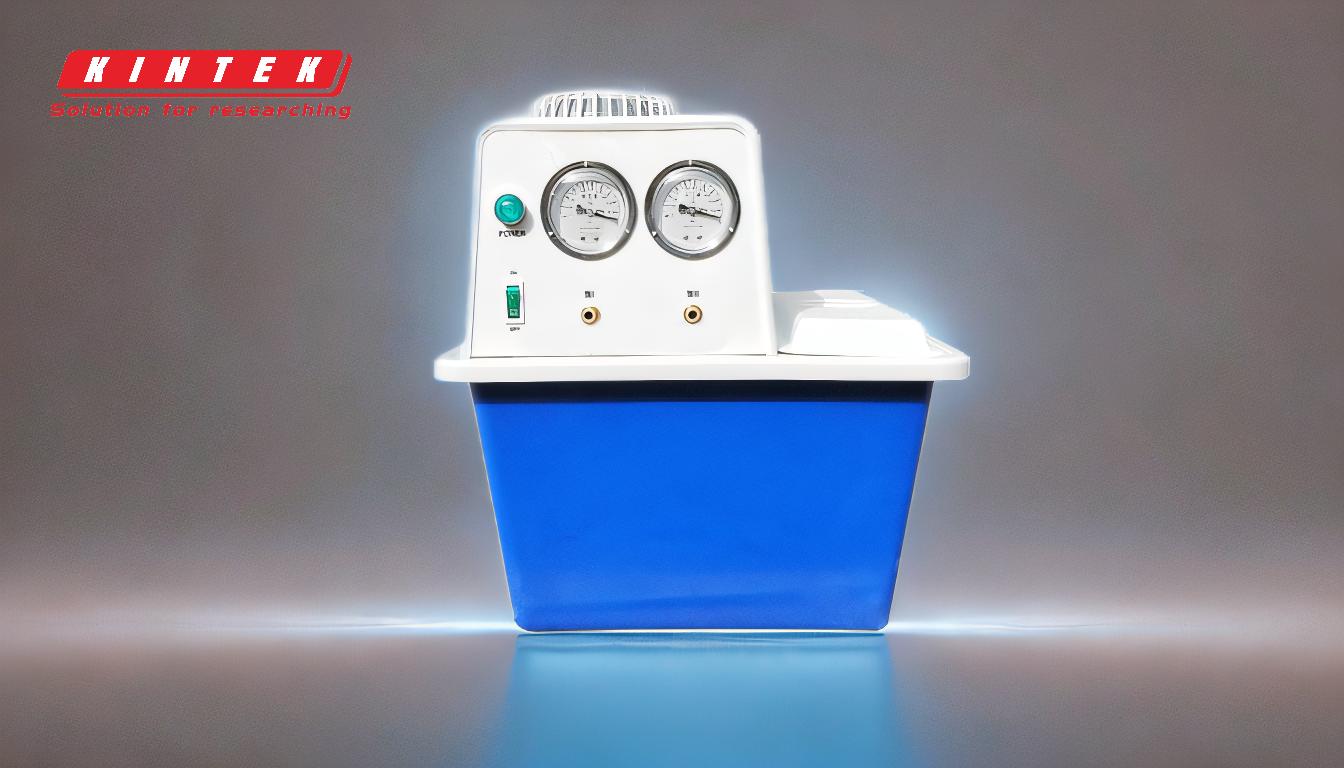The vacuum pump plays a critical role in the functioning of an evaporator by creating a reduced-pressure environment within the system. This reduction in pressure lowers the boiling point of the solvent, allowing it to evaporate at lower temperatures. This process is particularly beneficial for heat-sensitive materials, as it minimizes the risk of thermal degradation. Additionally, the vacuum pump facilitates faster evaporation, improves energy efficiency, and ensures the purity of the extracted solvents by maintaining a continuous feed system. Its ability to quickly adjust pressure also provides precise control over the evaporation process, making it an indispensable component in laboratory and industrial applications.
Key Points Explained:

-
Reduction of Air Pressure:
- The vacuum pump decreases the air pressure within the evaporation system. By creating a partial vacuum, it reduces the vapor pressure of the solvent.
- This reduction in pressure is essential for lowering the boiling point of the solvent, enabling evaporation at temperatures significantly lower than its standard boiling point.
-
Lower Boiling Point:
- Lowering the boiling point is particularly advantageous for heat-sensitive compounds. It prevents thermal degradation and ensures the integrity of the material being processed.
- For example, in a rotary evaporator, the vacuum pump allows solvents to evaporate at temperatures that would otherwise be insufficient, preserving the quality of sensitive samples.
-
Faster Evaporation:
- The reduced pressure environment accelerates the evaporation process. This is because the solvent molecules can escape into the vapor phase more readily at lower pressures.
- Faster evaporation is beneficial in both laboratory and industrial settings, as it increases throughput and reduces processing time.
-
Energy Efficiency:
- By enabling evaporation at lower temperatures, the vacuum pump reduces the energy input required for the process. This makes the system more energy-efficient and cost-effective.
- Lower energy consumption also contributes to environmental sustainability by reducing the carbon footprint of the operation.
-
Gentle Processing of Heat-Sensitive Materials:
- The ability to evaporate solvents at lower temperatures is crucial for processing heat-sensitive materials. It minimizes the risk of unwanted chemical reactions or degradation.
- This feature is particularly important in pharmaceutical and biochemical applications, where maintaining the stability of compounds is paramount.
-
Continuous Feed System and Solvent Purity:
- The vacuum pump helps maintain a continuous feed system by removing gases from the sealed equipment. This ensures a steady flow of solvents and prevents contamination.
- Maintaining purity is essential in applications such as solvent recovery and distillation, where the quality of the extracted solvent is critical.
-
Adjustable Process Control:
- The vacuum pump provides a quickly adjustable parameter to influence the speed and efficiency of the evaporation process. This allows for precise control over the operation, ensuring optimal results.
- Adjustable pressure settings enable users to tailor the process to specific requirements, enhancing flexibility and versatility.
-
Safety Improvements:
- Lower operating temperatures reduce the risk of overheating and potential hazards associated with high-temperature processes. This improves overall safety in the laboratory or industrial environment.
- Additionally, the reduced pressure environment minimizes the risk of solvent spills or explosions, further enhancing operational safety.
In summary, the vacuum pump is a vital component of an evaporator, enabling efficient, safe, and precise evaporation of solvents. Its ability to lower boiling points, accelerate evaporation, and protect heat-sensitive materials makes it indispensable in a wide range of applications.
Summary Table:
| Key Benefits | Description |
|---|---|
| Reduction of Air Pressure | Creates a partial vacuum, lowering the solvent's boiling point. |
| Lower Boiling Point | Enables evaporation at lower temperatures, ideal for heat-sensitive materials. |
| Faster Evaporation | Accelerates the process, increasing throughput and reducing processing time. |
| Energy Efficiency | Reduces energy input, making the system cost-effective and environmentally friendly. |
| Gentle Processing | Protects heat-sensitive materials from degradation. |
| Continuous Feed System | Ensures solvent purity and prevents contamination. |
| Adjustable Process Control | Provides precise control over evaporation speed and efficiency. |
| Safety Improvements | Minimizes overheating risks and enhances operational safety. |
Discover how a vacuum pump can optimize your evaporation process—contact our experts today for more information!











